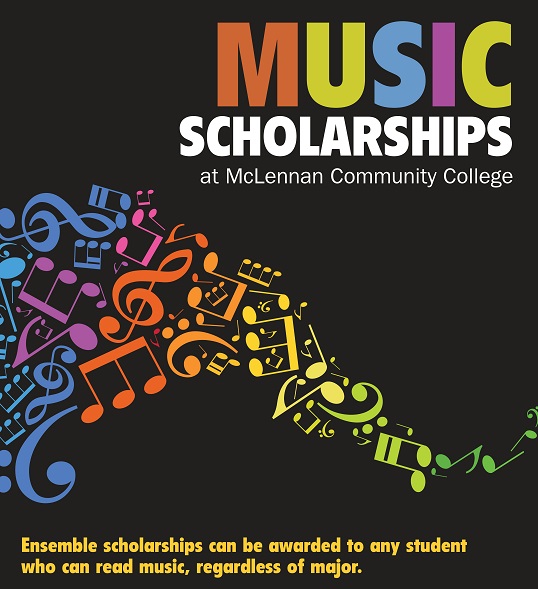I remember standing in my practice room, fingers aching from hours of scales, a melody swirling in my head. My instrument felt like an extension of myself, my voice in a world that sometimes felt too loud. But there was another, quieter sound that always crept in: the whispers of tuition fees, the daunting cost of a music degree. Could I really pursue this passion, or would it remain just a dream?
That’s a question many young musicians face. We pour our hearts into our craft, dreaming of concert halls, recording studios, or simply teaching the next generation. But the reality of higher education costs can be a harsh wake-up call. For a long time, I thought the only way was through massive loans, or worse, giving up on my musical aspirations altogether.
Then, I heard about music scholarships. It was like a hidden harmony suddenly revealing itself. Financial aid specifically for musicians? It sounded too good to be true. But let me tell you, it’s not. And my story is proof that with dedication, practice (not just on your instrument!), and a bit of smart searching, you can find the funding to make your musical journey a reality.
I’m here to share my personal experience, the ups and downs, the lessons learned, and the practical steps I took to land a scholarship that truly changed my life. Think of me as your guide, sharing what I wish I knew when I started.
My "Aha!" Moment: Realizing Scholarships Were My Key
It was during my junior year of high school. My band director, Mr. Harrison, a man whose passion for music was as infectious as his laugh, pulled me aside after a rehearsal. He saw how much I loved playing, how I stayed late to practice, how I helped younger students.
"You’re good, really good," he said, adjusting his glasses. "But ‘good’ isn’t enough for music school. You need to be smart about it. Have you looked into scholarships?"
I mumbled something about them being "for geniuses" or "just for people with perfect grades." I felt like my talent was okay, but maybe not scholarship-worthy.
He smiled kindly. "There are many kinds of scholarships, not just for the ‘best of the best.’ Some are for specific instruments, some for certain types of students, some for leadership. And yes, some are about your skill. But you won’t know unless you look. And you won’t get one if you don’t apply."
That conversation lit a fire under me. It shifted my perspective from "I can’t afford this" to "How can I make this happen?" That’s when my real journey began.
Where to Start Looking: Don’t Just Play, Research!
The first step, and honestly, one of the most important, is research. It’s not as exciting as learning a new piece, but it’s just as vital. I treated my scholarship search like a detective case.
1. Start with the Colleges Themselves
Every music school, university music department, or conservatory has its own financial aid office. This should be your first port of call. I remember spending hours on university websites, clicking through "Admissions," then "Financial Aid," then "Scholarships."
- University-Specific Scholarships: Many schools offer their own scholarships based on talent (audition-based), academic merit, or a combination. These are often the biggest and most impactful. Look for specific music department scholarships, dean’s scholarships, or named endowments.
- Application Process: Pay close attention to their deadlines and requirements. Some scholarships are automatically considered when you apply for admission, others require separate applications.
2. Widen Your Net: External Organizations
Beyond the schools, there’s a whole world of external organizations that offer music scholarships. This is where you really need to put on your detective hat.
- Professional Music Organizations: Groups like the National Association for Music Education (NAfME), various instrument-specific societies (e.g., American String Teachers Association, National Flute Association), and genre-specific groups (e.g., Jazz Education Network) often have scholarship programs.
- Local Community Groups: Don’t overlook your hometown! Local Rotary Clubs, Lions Clubs, women’s clubs, churches, and even local arts councils frequently offer scholarships to students from their community. These are often less competitive because the applicant pool is smaller. I found one through my local arts council that helped cover my textbooks!
- Foundations and Trusts: There are many philanthropic foundations dedicated to supporting the arts. Finding these can be trickier, often requiring more in-depth searching online using terms like "music education grants," "arts scholarships," or "performing arts funding."
- Online Scholarship Databases: Websites like Fastweb, Scholarship.com, and BigFuture allow you to create a profile and get matched with scholarships. They’re a great starting point, but remember to double-check the legitimacy and deadlines of any scholarship you find there.
My Tip: Create a spreadsheet! I listed every scholarship I found, its requirements, deadline, what it covered, and my progress on the application. It kept me organized and sane.
Understanding the Different Types of Music Scholarships
Not all scholarships are created equal, and understanding the different kinds can help you target your search.
- Merit-Based Scholarships (Talent): These are perhaps the most common for music. They are awarded based on your musical talent, demonstrated through auditions, portfolios, or recordings. My main scholarship was largely merit-based, recognizing my skill on my instrument.
- Academic Scholarships: Some scholarships are awarded based on your academic performance (GPA, test scores). While music is your focus, good grades show you’re a dedicated student overall.
- Need-Based Scholarships: These are given to students who demonstrate financial need. You’ll typically need to fill out the Free Application for Federal Student Aid (FAFSA) or other financial forms to qualify.
- Specific Instrument/Genre Scholarships: Are you a bassoonist? A jazz vocalist? An organist? Many scholarships target specific instruments, vocal ranges, or musical genres.
- Diversity/Background Scholarships: Some scholarships aim to support students from underrepresented groups or specific cultural backgrounds.
- Leadership/Community Service Scholarships: If you’ve shown leadership in your school band, orchestra, or choir, or volunteered in your community, there are scholarships that recognize these qualities.
The Takeaway: Don’t limit yourself to just talent-based scholarships. Your well-roundedness as a student and a person can open many doors.
The Audition: Your Moment to Shine
For many music scholarships, the audition is the most important part. This is where you show what you’ve been working on for years. I remember my hands shaking before my first major audition. Here’s what I learned:
1. Preparation is Key (Beyond Just Practicing Notes)
- Repertoire: Choose pieces that showcase your strengths and technical abilities, but also your musicality. Pick contrasting pieces to show your range. Make sure they are polished and performance-ready. Don’t try to learn something new a week before the audition.
- Technical Work: Scales, arpeggios, sight-reading – these are often part of the audition. Don’t neglect them! They show fundamental musicianship.
- Record Yourself: This was a game-changer for me. Recording and listening back (even though it can be painful!) helps you hear what the judges will hear. Identify weak spots and fix them.
- Perform for Others: Play for your family, friends, teacher, even your pet. Getting used to playing under pressure helps. I played for anyone who would listen!
2. The Day Of: Nerves are Normal, Confidence is Crucial
- Dress Appropriately: You don’t need a tuxedo, but dress neatly and professionally. It shows respect for the panel and the opportunity.
- Arrive Early: Give yourself time to find the location, warm up, and settle your nerves.
- Be Yourself: When you walk in, smile, make eye contact. They’re looking for a person they want to teach, not just a robot who plays notes perfectly.
- Take a Breath: Before you start playing, take a deep breath. Center yourself.
- Communicate Through Music: Let your passion and hard work come through in your playing. This is your chance to tell your story without words.
- Be Prepared for Questions: They might ask why you chose a particular piece, what your musical goals are, or about your experience. Have thoughtful answers ready.
My Audition Story: For my big scholarship audition, I was so nervous my bow felt like lead. I started my first piece, and my hands trembled. But then, something clicked. I remembered Mr. Harrison’s words: "Play for you." I closed my eyes for a second, took a deep breath, and just played the music. I focused on the feeling, the story of the piece. When I finished, the panel looked at me, and one of them smiled. "Thank you," she said. "That was beautiful." It wasn’t perfect, but it was honest, and it was me.
Crafting a Stand-Out Application (Beyond the Notes)
While the audition often takes center stage, the written application is your chance to show you’re more than just a talented musician.
- Resume/CV: List your musical experience (ensembles, solos, awards, lessons), academic achievements, leadership roles, and any community service. Make it clear and easy to read.
- Essays/Personal Statements: This is where your voice shines. Tell your story. Why music? What are your dreams? How has music shaped you? Be authentic, heartfelt, and proofread meticulously. I wrote about how music helped me overcome shyness.
- Letters of Recommendation: Choose teachers, mentors, or conductors who know your musical abilities and your character well. Ask them early and provide them with your resume and a list of your achievements. A strong recommendation can really make a difference.
- Recordings/Portfolios: If you’re applying for composition, music production, or sometimes even performance, you might need to submit recordings or a portfolio of your work. Ensure the quality is excellent – both musically and technically (good sound!).
My Tip: Don’t just list achievements. Show their impact. Instead of "Played in school orchestra," try "Served as principal cellist in the school orchestra for three years, leading my section and mentoring younger students."
Beyond the Notes: What Else Matters?
Scholarship committees aren’t just looking for the most technically proficient musician. They’re looking for future leaders, dedicated students, and individuals who will contribute positively to their program.
- Academic Performance: Your GPA matters. It shows you’re serious about your studies and can handle the academic rigor of college.
- Passion and Drive: Do you live and breathe music? Does your application convey a deep, unwavering commitment to your craft? This intangible quality is often what sets candidates apart.
- Leadership and Teamwork: Music is often a collaborative art. Show that you can work well with others, lead when necessary, and be a positive force in an ensemble.
- Curiosity and Open-Mindedness: Are you eager to learn new things, explore different genres, and grow as an artist?
Dealing with Rejection (It’s Part of the Journey)
I’ll be honest, I didn’t get every scholarship I applied for. Some rejections stung. It’s easy to feel disheartened and question your abilities. But here’s the crucial lesson I learned: Rejection is not a reflection of your worth or your talent.
- It’s a Numbers Game: There are always more applicants than scholarships.
- Fit Matters: Sometimes, you just aren’t the exact "fit" for what a specific scholarship committee is looking for that year. It might be a preference for a different instrument, a different style, or simply a different background.
- Learn and Move On: Don’t dwell on it. Take a moment to feel disappointed, then analyze if there’s anything you could have done differently for future applications. Then, focus on the next opportunity.
My Experience: I got a polite "no" from a regional music foundation. I was crushed. But it pushed me to refine my audition pieces even further for the university scholarship, making me even more prepared when the bigger opportunity came along.
My Big Day: The Acceptance Letter
After months of practicing, writing, asking for recommendations, and waiting, the email finally arrived. I remember staring at the subject line: "Update on Your Application – [University Name] School of Music." My heart hammered. I clicked it open, eyes scanning frantically for keywords.
And there it was. "Congratulations! We are delighted to offer you admission to the School of Music…" and then, a few paragraphs down, "…and a [Scholarship Name] merit scholarship, covering a significant portion of your tuition."
I yelled. I cried. I called my parents, then Mr. Harrison. It wasn’t just money; it was validation. It was the universe saying, "Yes, your passion is valid. Yes, your hard work paid off. Go chase your dreams."
Your Journey Starts Now
My story is just one example, and your journey will be unique. But the core message remains the same: Music scholarships are real, they are attainable, and they can make your musical education possible.
Don’t let the fear of cost silence your passion. Start your research today. Practice diligently. Craft compelling applications. Believe in your talent and your dedication. The world needs your music, and there are people and organizations out there ready to help you share it.
Go on, tune up, and start your own scholarship symphony. The stage (and the classroom) awaits!
Frequently Asked Questions About Music Scholarships
Q1: How hard is it to get a music scholarship?
A1: It varies greatly. Some highly competitive scholarships require exceptional talent and academic achievement, while others, particularly local or niche scholarships, might have smaller applicant pools and be more accessible. Your chances improve significantly by applying to a variety of scholarships and presenting a strong, well-rounded application and audition.
Q2: Do I need a perfect GPA to get a music scholarship?
A2: Not necessarily for all scholarships. While good academic standing (often a GPA of 3.0 or higher) is generally preferred and can qualify you for academic merit scholarships, many music scholarships prioritize musical talent and potential above a perfect GPA. However, strong grades always make your application more appealing.
Q3: Can I get a music scholarship for any instrument or vocal type?
A3: Yes! Scholarships exist for virtually all instruments (including classical, jazz, and contemporary), vocal types, and even for areas like composition, music education, music therapy, and music business. Some scholarships might be very specific (e.g., for oboe players), while others are broader.
Q4: When should I start looking and applying for music scholarships?
A4: It’s best to start early, ideally during your junior year of high school. Many college application and scholarship deadlines fall between October and March of your senior year. External scholarships often have varying deadlines throughout the year, so consistent searching is important.
Q5: Do I have to major in music to get a music scholarship?
A5: Most significant music scholarships, especially those offered by university music departments, will require you to declare a music major or minor. However, some external or general university scholarships might be open to students with a strong musical background who plan to pursue music extracurricularly, even if their major is in another field. Always check the specific requirements of each scholarship.
Q6: What if I don’t have access to an expensive instrument or private lessons?
A6: Scholarship committees understand that not all students have the same resources. Focus on demonstrating your passion, potential, and how you’ve made the most of the opportunities you do have. Many music programs offer instrument rentals or financial aid for lessons once you’re accepted. Highlight your self-taught skills, community music involvement, or any way you’ve found to grow musically despite limitations.
Q7: What kind of pieces should I prepare for a music scholarship audition?
A7: Generally, you’ll be asked to prepare 2-3 contrasting pieces that showcase your technical ability and musicality. This might include a fast, technically demanding piece and a slower, more lyrical one. Often, they prefer pieces from the standard classical repertoire for your instrument/voice. Always check the specific requirements of each school or scholarship, as they often list suggested repertoire or specific requirements (e.g., sight-reading, scales, specific excerpts).



